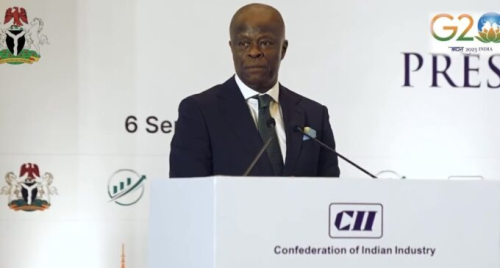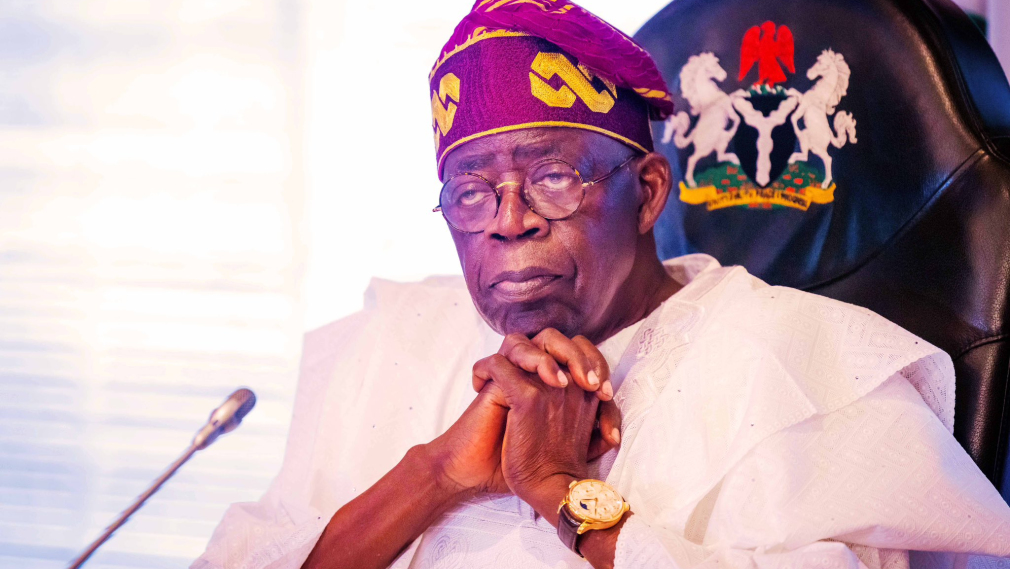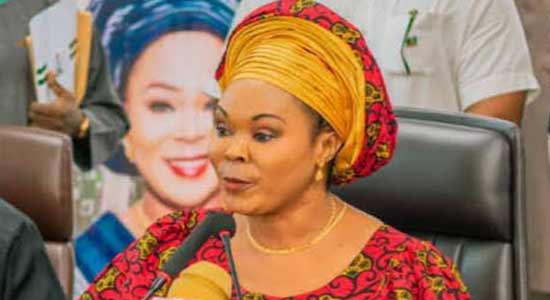THE EXECUTIVE 41 minutes ago
Inflation, Biggest Challenge to Stabilising Nigeria’s Economy — Wale Edun

The Minister of Finance and Coordinating Minister of the Economy, Mr. Wale Edun, has said one of the biggest challenges in the efforts to stabilise the Nigerian economy is inflation.
The minister, who stated this during a recent media interview, also noted that following the measures adopted by the government, there is a resurgence of investor confidence in the Nigerian economy.
Speaking on a wide range of issues concerning the economy, the minister, who expressed optimism over the country’s economic trajectory in 2025 and beyond, said projections provided by the International Monetary Fund (IMF), the World Bank, and other forecasters agree that growth will improve and inflation will slow, noting that in 2025, the issues around economic stability will be largely resolved.
“Perhaps the biggest issue with stabilising our economy is to reduce inflation and keep it low,” he said, adding, “We are clear that very significant progress will be achieved in this regard in the months ahead. If nothing else, we expect the downward path of fuel prices, a major element in stoking higher prices, to continue.”
Nigeria’s inflation rate has remained high for too long, fueled by rising costs of food, energy, and the fluctuating exchange rate.
Efforts by the Central Bank of Nigeria (CBN) to keep inflation down by tightening the monetary policy rate could not yield much result, as inflation maintained an upward trajectory. Throughout 2024, the CBN consistently raised the interest rate, hitting 27.50 per cent in its efforts to reduce money supply and check rising inflation, which hit 34.80 per cent in December 2024.
The rising inflation has also drained the purchasing power of the average citizen, limiting their ability to invest and contribute to economic growth.
Experts had warned that the rising inflation cannot be checked using only monetary policy measures, insisting that fiscal authorities also need to step up their game, as the major drivers of inflation, such as high food and energy prices, especially fuel, are within the control of fiscal authorities.
The minister, during the chat, acknowledged that the downward trend in the price of fuel, resulting from the combination of enhanced domestic refining capacity provided by the Dangote Refinery, stable exchange rate, and the government policy to sell crude oil to domestic refiners in naira, have all contributed to the turnaround in fuel prices. “We expect to see further reductions in the year ahead as the combination of factors above is further strengthened by additional refining capacity from government-owned refineries and the BUA Group becoming effective,” he said, noting also that the government expects a significantly slower increase in food prices to contribute to lower inflation.
The minister said that it is wrong to say that the Nigerian economy has been in recession.
According to him, since the Tinubu administration took office at the end of May 2023, the economy has consistently grown, and this growth is broad-based.
“The latest data for output growth show the economy grew by just under 3.5 per cent between July and September 2024. Between January and September, it grew at an average of 3.23 per cent.
“Data published by the National Bureau of Statistics (NBS) for Q3 2024 shows that 97 per cent of our economy continues to grow.”
He said the area that has been of concern is the financial system – especially the market for foreign exchange.
He, however, noted that the new team at the CBN, led by the Governor, Yemi Cardoso, has instituted a wide range of reform measures, which have reversed the adverse impression about the safety and reliability of the financial system.
According to him, ensuring payment of ‘trapped’ monies and settling outstanding debts, and various reforms of the foreign exchange market and its requirement for capital enhancement by banks, have resulted in greater confidence in our financial system.
He added, “With the government staying strictly within the legal bounds in its use of borrowing from the Central Bank, the growth in liquidity has been curtailed. All of these have resulted in a more stable exchange rate.”
In the energy sector, he said the government will continue to work towards improving the availability and access to electricity and the production of oil and gas.
“We are seeing new investments which will go a long way towards enabling improved production,” he said. “In December, Shell Nigeria announced investment in the Bonga North Field. With other investments in the onshore segment by indigenous companies such as Renaissance Africa Energy, OANDO, and SEPLAT, we are confident that our reform programme continues to make progress.”
Speaking further on the returning investors’ confidence, Edun said building trust capital is fundamental to restoring the confidence of all stakeholders – domestic or foreign. He said the government has taken some measures to ensure transparency and predictability in the foreign exchange market, which is part of the reasons trust is returning.
He listed some of such measures to include deploying technology towards eliminating leakages and opaqueness in government financial transactions, which he said has led to a significant reduction in leakages.
“Beyond the fiscal arrangements, the Central Bank of Nigeria (CBN) has sharply improved on its regulatory work to enable confidence in all facets of our financial architecture,” Edun said.
“Recently, it introduced the Bloomberg Electronic Foreign Exchange Matching System to ensure efficient price discovery. This system enables a credible and transparent process in that market that will help anchor stakeholder expectations and thus enhance market predictability.
“This follows a long line of other financial market reforms which commenced with the unification of various existing exchange rate windows in June last year.”
On the next steps the government intends to take, the Minister said the government, at the moment, is concerned about dealing with and addressing what he described as “our pain points” around enabling protection for vulnerable citizens, sharply improving food supply, reducing costs, and supporting key sectors to grow even faster than they are presently doing.
“As I have noted, we still have a long way to go in reaching the most vulnerable in our society. The cash transfer programme has reached approximately one-third of the intended recipients. This is far from satisfactory.
“We have identified the issues and are working to ensure that all intended recipients are covered as soon as possible.”
He noted that access to food is a major component of quality of life for the citizens.
“Even though the agricultural output is improving, with 1.1 per cent growth between July and September 2024, this is too slow to enable us to feed our citizens and our sub-regional compatriots,” he said.
“We are working to stimulate growth in the agriculture sector to increase beyond the rate of population increase.”
He said it is also very important for the government that output in the energy sector – oil and gas, and electricity – improves considerably. He noted that Nigeria has industrial ambitions, and these cannot be realised without energy input.
He said, “In my view, we need to consider various options for stimulating investment in the energy sector. Without an efficient and cost-competitive energy sector, we will be unable to get our manufacturing and processing sector into a position where it can take advantage of the opportunities inherent in the African Continental Free Trade Agreement (AfCFTA).”
On the issue of tax reforms, the Minister said the Presidential Committee on Fiscal and Tax Reforms has already yielded a set of bills which are before the legislature. He said these tax reforms and the fiscal space they create will also enable more room for the effectiveness of monetary policy and thus improve the outcomes of fiscal-monetary policy coordination.
“At the heart of our thinking around the next steps is to drive rapid, sustained, inclusive, and sustainable growth in our economy,” he said.
“As a government, our aim as we begin to reflect on the successor to the current National Development Plan is to get output growth of 7% by 2027 while keeping inflation down, exchange rates stable, and interest rates within limits that enable funding of organisations needing external capital. To do all these, we need to stimulate investment by domestic wealth holders in our economy.”



